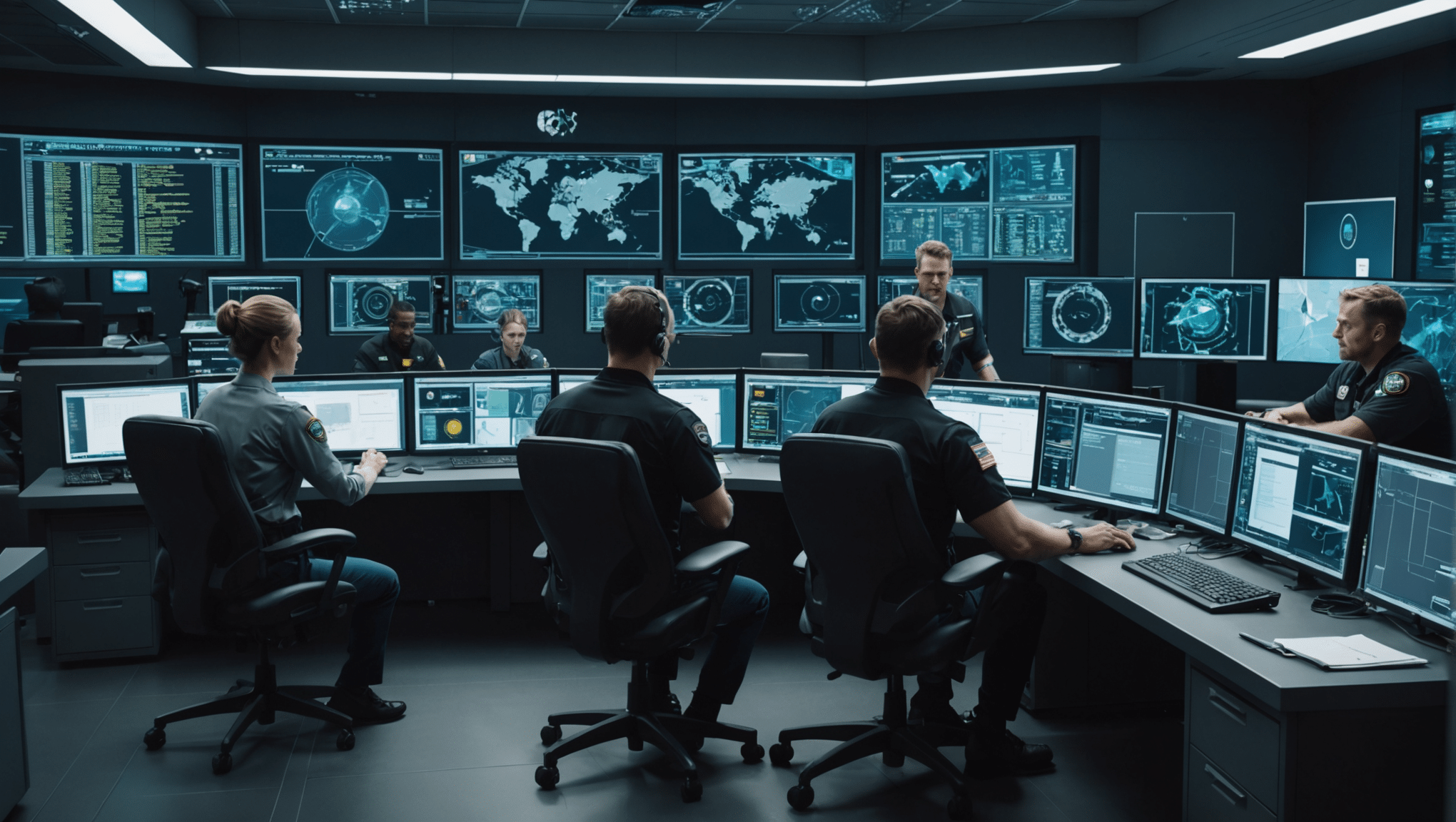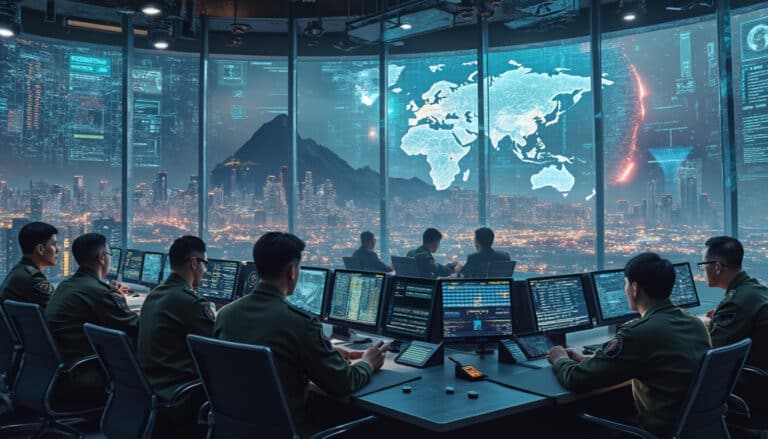As our reliance on digital technologies increases, the question of cybersecurity in the defense sector is becoming of crucial importance. Critical infrastructure, which forms the foundation of our national security, is exposed to increasingly sophisticated cyber threats. Protecting these systems requires a thoughtful strategy, which is based on a thorough understanding of the risks involved and the operating methods of cyberattackers.
There cybersecurity Military is not limited to strengthening computer networks, but also encompasses the ability to anticipate, detect and respond to threats before they become a reality. There cyber defense, for its part, focuses on protecting our data and operations against external attacks. Entities such as DGSI play a central role in this fight, by monitoring threats potentially linked to espionage or terrorism.
In this context, defense professionals must continually train in new cybersecurity practices, integrating proactive methods to safeguard our vital infrastructure. The issues are clear: the survival of our national security depends on our ability to adapt and innovate in the face of contemporary cyber challenges.
There cybersecurity in the defense sector represents a major challenge for national security and the protection of critical infrastructure. In the digital age, cyber threats evolve rapidly and undermine information systems vital to state security. National defense is no exception to this reality, and it is essential to adopt robust strategies to prevent and counter cyberattacks.
Table des matières
ToggleUnderstanding the challenges of military cybersecurity
The issues of the military cybersecurity are available in several sizes. First, it is crucial to understand why cybersecurity is vital to military operations. A vulnerable information system can be costly, not only in financial terms but also in human losses. Sensitive information regarding operations, troop movements and strategic assets can be compromised, which can have disastrous consequences.
Then, the protection of sensitive infrastructure is essential. These infrastructures, whether civil or military, are often interconnected and depend on sophisticated digital systems. Cyber defense must therefore focus on protecting these systems against various threats, ranging from hacking to disinformation. To do this, it is essential to implement an integrated security policy which takes into account the specificities of the military environment, while being part of a broader framework for the protection of critical infrastructures.
Finally, faced with an unprecedented rise in cyber threats — whether cyber espionage, of cyberterrorism or even hostile cyber actions carried out by malicious states — recognition of the importance of specialized cybersecurity training must be paramount, both for the military and for civilians. Defense organizations, such as the DGSI, play a key role in this education, by coordinating training initiatives that aim to raise awareness and raise awareness of current issues.
Strategies for ensuring cybersecurity in defense operations
To respond to these challenges, several strategies can be considered. The first of these consists of developing a cybersecurity strategy national. This strategy should include a comprehensive assessment of potential risks and threats related to cyberspace. This involves, among other things, mapping critical systems and assessing their degree of vulnerability to cyberattacks. Furthermore, establishing a normative and regulatory framework for cybersecurity within the armed forces is also vital to ensure an effective response in the event of a threat.
Another essential approach is the implementation of collaboration protocols between different areas of expertise. Military institutions must cooperate with the private sector and cybersecurity experts to benefit from best practices and technologies. Cyberattack simulation exercises can be conducted to test the resilience of systems and identify gaps in response procedures. Additionally, this promotes information sharing and the establishment of a culture in which cybersecurity is a shared priority.
It is also crucial to train staff on the issues and tools of cybersecurity. Continuing training programs must be implemented to ensure that all members of the armed forces are aware of new threats and good security practices. Training must not only cover technical aspects, but also notions of responsible and secure behavior in the use of digital technologies. Thus, each soldier becomes an actor in defense against cyberattacks.
Innovate to defend yourself: emerging technologies and future prospects
Emerging technologies play a fundamental role in how defense infrastructure can protect itself. Advances in machine learning andartificial intelligence make it possible to automatically detect abnormal behavior in IT systems, providing a proactive response to cyber threats. Using these technologies can also help predict and adequately prepare for future attacks.
In addition, the adoption of solutions advanced cryptography and enhanced security protocols help protect sensitive data in transit. For example, exploring blockchain technologies can offer new possibilities in data security, including the storage and transfer of information, which can contribute to the security of military networks.
It is also relevant to explore ≤zero trust cybersecurity architecture, a security model that never trusts any user or device by default, even if it comes from an internal network. This represents a paradigm shift in the way we secure infrastructure. By ensuring that each access is verified and authenticated, the risks of intrusion or manipulation of systems are considerably reduced.
Furthermore, international collaboration in the field of cybersecurity is vital. Threats know no borders, and it is therefore essential that countries share resources, expertise and intelligence to strengthen global security. Many international initiatives already exist, but they require strengthened commitment and collective will to establish common cybersecurity standards and protocols.
Ultimately, cybersecurity in defense requires constant vigilance, adequate training and the integration of innovative technologies. The stakes are too high to ignore, and it is essential that military organizations fully engage in a proactive approach to protecting our sensitive infrastructure.

[#Enquête] Nouvelle enquête sur la cybersécurité des TPE-PME
— Cybermalveillance.gouv.fr (@cybervictimes) July 2, 2024
📰 https://t.co/A9ZW7AmLkk lance une nouvelle enquête sur le risque, les besoins et le niveau de maturité des TPE-PME en matière de cybersécurité.
👉 Pour répondre à l'enquête, cliquez ici : https://t.co/r4oVNkj0oZ
Defense Cybersecurity FAQ
What are the main cybersecurity challenges in the defense sector? The issues include the protection of information systems, saving critical infrastructure, as well as prevention against cyberattacks aimed at compromising the national sovereignty.
How does coordination between cybersecurity and cyber defense take place? A national strategy is put in place to guarantee the security critical infrastructure and coordinate defense efforts against digital threats.
What are the best practices to ensure the security of our infrastructures? It is essential to develop a security strategy adapted to your challenges, to use solutions cybersecurity effective and strengthen the network monitoring.
How can businesses contribute to national cybersecurity? Companies must put in place security protocols rigorous, raise awareness among their staff about cyber threats and collaborate with authorities to share critical information.
Why is cybersecurity crucial for the military? Due to growing threats in matters of cyber espionage and of terrorism, it is imperative for the army to equip itself with adequate capabilities to ensure the data security and military systems.
What types of training are available in the field of defense cybersecurity? There are various professional training aimed at forming cybersecurity analysts specialized in defense and in anticipation of computer threats.
What role does the DGSI play in national cybersecurity? The DGSI is responsible for monitoring threats like theespionage and the acts of subversion, thus helping to coordinate the national response to cyber threats.
How does technological innovation influence cybersecurity in defense? Technological advances make it possible to develop cyber defense solutions more sophisticated, while increasing the complexity and the variety of threats.
























